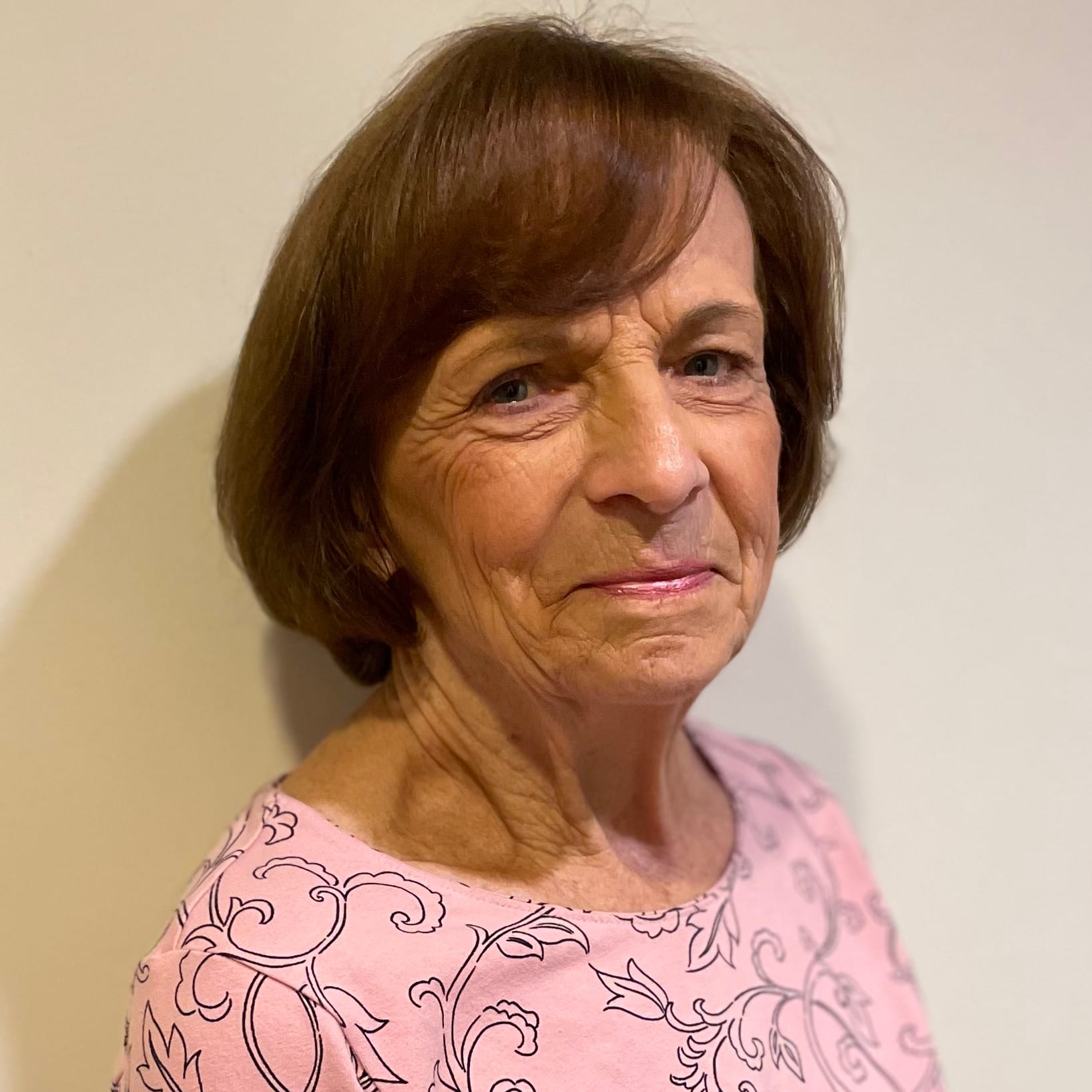
Dorothy shared her story in October of 2022.
At age 36, my daughter Wendy was diagnosed with non-small cell lung cancer and given a 5% chance of surviving five years. Her oncologist told her he would do all he could to make sure she was one of the 5%. This would turn out to be more of a curse than a blessing: My daughter spent the next two and a half years in agony before she died.
Wendy was the most loving person. A flight attendant for Southwest Airlines based out of Chicago, Wendy loved giving gifts, many of them handmade by her, to all her flight attendant friends and her family. At Christmas, half the room would be filled with her gifts to us. She was always thinking of other people, never herself.
In July 2003, Wendy was on a flight when she started coughing up blood. She called her mother-in-law, who was a nurse practitioner, to ask what she should do. Her response was, “Go home right now and see a doctor.” It was stage 4 lung cancer.
Wendy went through everything: surgery, chemotherapy after chemotherapy, radiation after radiation. She was nauseated, had no energy, lost her hair. It was horrible. The oncologist kept pushing for all these treatments, despite the long odds. Of course, Wendy was young, and it was easy to want to do everything possible. In retrospect, though, I think she would say that it was too bad that she wasn’t getting a more realistic prognosis. If she had been offered a more frank assessment and the option of a palliative approach, she could have spent those last years traveling, doing fun things, spending time with her family.
Wendy and I got to experience a glimmer of what that might have been like when, shortly after her diagnosis, we went on a mother-daughter trip to Tahiti. Growing up, Wendy would not dip a toe in a lake, river or ocean if there were even minnows. We have old pictures of our entire family where we’re all in the water, and Wendy is standing alone on the beach. So it took me by surprise when we arrived in Tahiti and she proposed swimming with dolphins and whales! Now I have pictures of her in the crystal clear Tahitian waters with dolphins swimming all around her. She had completely overcome her fears.
Over the next two years, Wendy’s overall health continued to decline. In her last six months, she was unable to breathe without oxygen. She was suffering physically and emotionally. She was not one to discuss how bad she felt, because she wanted to save us the pain. But her cancer had metastasized, and she was clearly hurting everywhere.
If her doctor had been more transparent with her and said, “There’s no hope; we can put you in hospice,” I think she would have agreed. And if she had had the option of medical aid in dying, I believe she would have chosen it. At that point, the only thing she feared was more pain.
Six years after Wendy died, my husband — her father — was in the final stages of Alzheimer’s disease. His advance directive stated that he did not consent to nutrition, hydration or other life support if he had an irreversible condition. Thanks to Compassion & Choices, we knew about voluntarily stopping eating and drinking (VSED), and that’s how he chose to go out — but not without some resistance from his caregiving team.
My husband was in a nursing home and on hospice. Nearing death and in an almost comatose condition, he began refusing to eat. Despite my posting his advance directive on his bedpost and informing the nurses that he did not want to be fed or offered water, but only wanted comfort care, one day I walked in and discovered one of the nurses force-feeding him a shake by tilting his recliner and pouring it into his mouth. I immediately called the doctor, who ordered the force-feeding to stop and reminded the nurses that this was against our wishes. Later, one of the nurses confronted me, saying, “Don’t you love him?” “Those are his wishes,” I replied. I often suspected this was not the only instance of force-feeding when I wasn’t around.
My husband died a week later. Had it not been for the unwanted feedings, he might have been at peace sooner.
When someone is already dying, no one else should get to tell them how they must die. It should be their decision, whether they want to go the long haul or hang up the cleats. I’ve been to church every Sunday since I was four years old. And when I hear people say, “God should make the decision about when a person dies,” I say, “God is our heavenly father. What father wants to see his children suffer?”
Seeing the challenges my husband and my daughter faced as they died has made me a committed advocate for expanded options for Iowans at the end of life, from medical aid in dying to refusing treatment, along with greater support from the medical community for whatever decision the person who is sick makes. I have an updated advance directive for myself now, and my family knows and supports my choices. I’ve been pushing for the medical aid-in-dying law for decades. And at age 82, I sure hope they hurry up! But I’m not doing it just for me. I want all of us to have choices at the end.
Mail contributions directly to:
Compassion & Choices Gift Processing Center
PO Box 485
Etna, NH 03750
Compassion & Choices is a 501 C3 organization. Federal tax number: 84-1328829